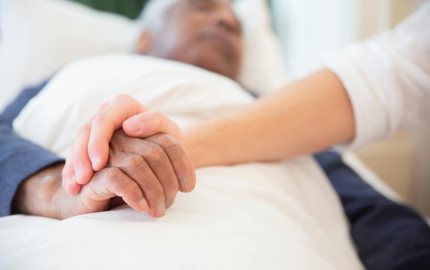Such institutions in the UK, are prominent in certain aspects of health and social care (though not in the provision of hospitals and primary medical care). And many of these institutions are Christian because of the Christian vocation to care which calls us to work for and nurture these organisations that can provide truly holistic care for those who need it. Care homes and hospices are especially important.
The practical example used here in Centesimus annus by Pope John Paul II relates to trades unions, but the point that is being made is clearly a general point:
Pope Leo XIII’s Encyclical also affirms other rights as inalienable and proper to the human person. Prominent among these, because of the space which the Pope devotes to it and the importance which he attaches to it, is the “natural human right” to form private associations…Here we find the reason for the Church’s defence and approval of the establishment of what are commonly called trade unions…the right of association is a natural right of the human being, which therefore precedes his or her incorporation into political society…”the State is bound to protect natural rights, not to destroy them; and if it forbids its citizens to form associations, it contradicts the very principle of its own existence”.
Making the point more generally, the Compendium of the Social Doctrine of the Church states: “The Church therefore seeks…freedom to form associations not only for religious purposes but also for educational, cultural, health care and charitable purposes.”
There are serious concerns that this freedom will be under threat due to the proposed legislation to legalise assisted suicide. To quote (at length) from a note issued by the Catholic Bishops’ Conference of England and Wales:
“In the vast majority of jurisdictions in which assisted suicide has been legalised, care homes and hospices have been required to facilitate it. It is highly likely that this will be the case in the UK if the Terminally Ill Adults (End of Life) Bill passes. The mechanisms by which this can come about are many and varied…
- The Secretary of State will be given the power to make regulations to ensure the availability of assisted suicide…They could impose requirements on hospices and care homes. In other similar fields equality of access to a “service” is, almost without exception, given priority over institutional freedom.
- The provision of assisted suicide could be tied to government funding of hospices, to the local authority funding of care home residents or to local health authority contracts. This has been the experience in Canada…
- Employers will not be able to take action against employees who choose to facilitate assisted suicide. In opposing the amendment that would have allowed care homes and hospices to not participate, one MP said quite clearly that it was wrong to allow care homes or hospices to prevent an employee exercising their conscience right to help a client of such an institution commit suicide. Bill proposers have made clear that they believe that the “rights” of employees and residents of institutions must be put ahead of the freedom of an institution. This may put Catholic hospices and care homes in an impossible position if staff, especially senior staff, take it upon themselves to make arrangements for a resident who wishes to have an assisted suicide or, in the case of a doctor, to provide direct assistance.
- Human rights or Equality Act challenges may well establish that somebody who is seriously ill and who cannot be comfortably moved will have their human rights undermined or be subject to detriment under the Equality Act if the institution in which they are being cared for does not help provide assisted suicide on the premises. The relevant minister dealing with the implementation of the Bill indicated in parliament that a human rights challenge to a care home that did not facilitate assisted suicide would be likely to succeed.”
In essence, a Bill which, ostensibly, gives freedom to people to have an assisted suicide is highly likely to become a right which imposes a correlative duty on institutions to provide it. This has happened in almost every other jurisdiction in the world where assisted suicide has been legalised. This undermines freedom of association further in principle, but there is a significant practical danger that Catholic hospices or care homes may have to withdraw services if this Bill becomes law (as may other hospices or care homes that do not wish to be involved with assisted suicide).
—
Photo by Kampus Production







